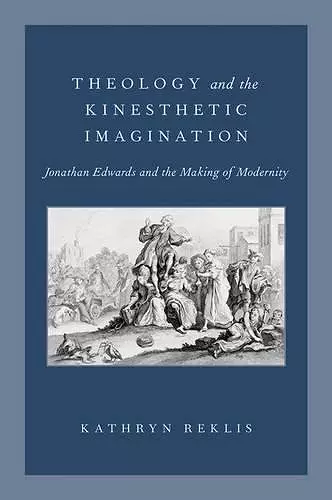Theology and the Kinesthetic Imagination
Jonathan Edwards and the Making of Modernity
Format:Hardback
Publisher:Oxford University Press Inc
Published:26th Jun '14
Currently unavailable, and unfortunately no date known when it will be back

Beauty, bodily knowledge, and desire have emerged in late modern Christian theology as candidates to reorient and reinvigorate reflection. In this book, Kathryn Reklis offers a case study of how those three elements converge in the work of Jonathan Edwards to escape the false dichotomies of early modernity. She studies Edwardss work in the context of the eighteenth-century colonial and European revivals known as the Great Awakening and the series of theological debates over the unruly bodies of revivalists. Seized by the new birth, these people convulsed, wept, shouted, fainted, leapt, and even levitated. For pro-revivalist Jonathan Edwards, these bodily manifestations were signs of a divine and supernatural light infused in the soulfor his opponents, clear proof of irrationality and dangerous enthusiasm. Bodily ecstasy was at the heart of a theological system marked by consummation in Gods overwhelming sovereignty, which Edwards described as being swallowed up in God. Reklis describes the theological meaning of the bodys ecstasy as kinesthetic imagination, a term which extends beyond the Great Awakening to trace the way bodily ecstasy continues to be coded as the expression of a primitive, hysterical, holistic, or natural self almost always in contrast to a modern, rational, fragmented, or artificial self. Edwards, she shows, is an excellent interlocutor for the exploration of kinesthetic imagination and theology, especially as it relates to contemporary questions about the role of beauty, body, and desire in theological knowledge. He wrote explicitly about the role of the body in theology, the centrality of affect in spiritual experience, and anchored all of this in a theological system grounded in beauty as his governing concept of divine reality. This book offers an innovative reading of one of the most widely known American theologians and offers this reading as provocation for debates within contemporary conversations.
Theology and the Kinesthetic Imagination offers a fascinating interpretation of one of Americas most notable religious figures. Reklis uses Jonathan Edwards as a case study of how a theologian on the cusp of modernity contested the Enlightenments preoccupation with disembodied reason and individualized subjectivities. Highlighting the roles of body, desire, and beauty in Edwardss preaching, this book will engage and provoke readers interested in theology and American religious history. * Mark Valeri, author of Heavenly Merchandize: How Religion Shaped Commerce in Puritan America *
This elegant book accomplishes three interwoven tasks. First, it demonstrates the vitality of performance studies as a resource for theology. Second, it offers a fascinating interpretation of Jonathan Edwards within contexts local and global. Third, it reveals how the roles of embodiment and affect have been contested within modernity from its earliest beginnings. Reklis's compelling work is vital for anyone interested in the role of the body in religious knowledge. * Shannon Craigo-Snell, Professor of Theology, Louisville Presbyterian Theological Seminary *
This is a wonderfully written book with important new things to say about Edwards and the future of Christian theology. Edwards and the bodily effects of his sermons come alive within the context of the circum-Atlantic world of his times, with the promise of an enlivened, more kinetically nuanced, theology to come * Kathryn Tanner, Frederick Marquand Professor of Systematic Theology, Yale Divinity School *
ISBN: 9780199373062
Dimensions: 160mm x 236mm x 23mm
Weight: 386g
192 pages